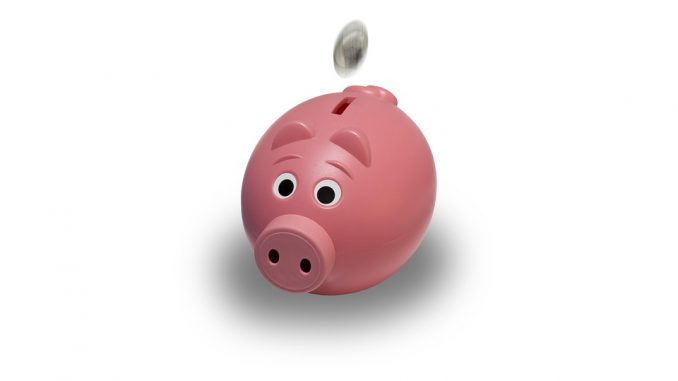
Amortization will get you to be free. In Sweden the former prime minister Göran Persson once said that you are never free as long as you have loans. Or similar, his saying is not easily translated.
But what it means is that as long as you have a loan, you owe someone else something and you can never be truly free as long as you have that loan. Simply enough, I think we all can believe that.
So why are loans increasing? Why do people take loans with an interest rate of 5-10% to buy a new car, an object that will loose half its value in a couple of years? Why do people take a loan to absolutely everything?
I have no idea, and the more I think about it, the crazier it gets.
Although inflation will decrease the value of a loan over time, the amount of money you will pay in interest will, by far, exceed the decrease in value that inflation will stand for. Lenders, like banks, would never survive if they served loans with lower interest rates than the rate of inflation.
So the answer is probably that everyone likes to have everything right now. We won’t live for ever (unless CRISPR will allow us to) so we seem to be in a big rush. Our lack of patience urge us all to take a loan, to buy that new car, that trip around the world, or whatever, immediately. If we don’t get it right now, the world will come to an end.
Or maybe not?
Why are we in such a hurry to put ourselves in a position where we have to pay for something far longer than we should have done if we saved up the money first? Why not, as the very good man behind Mr Money Mustache says, treat our debts as raging fires that we must put out as soon as possible?
Hand on heart; are you reducing your dependencies as much as you can by reducing your loans with amortization? What are you waiting for, why let your debts control you forever?
One good tactic is of course to throw all money that you can on amortization. If you have spare money, don’t buy unnecessary stuff. Put them in a short term fund, buy stocks or store them in an account where you get some interest, until you reach a certain amount and can amortize a somewhat larger sum.
Another good thing is to image the feeling you will have when you have no loans anymore. Amortization can get you there and you will be free from debts. You have to work hard, it will take time and you will have doubts on whether it is the right thing to do or not. If you believe you can get more money out from your investments, do invest but use good discipline and once you have a large sum pay off your debts.
And if we stop and think about that feeling… Envision yourself free from debt, where you have no loans – only the possibility to further invest whatever you like to in whatever area you prefer.
[sgmb id=”1″]
There is of course one area where loans could be not only possible, but also a good thing. If you have payed off all your personal debts, and decide to purchase a house or any other asset that you could get rentals from, a loan is of course a good way of maximizing income. But you should still do amortization for that loan and include the cost for amortization in the monthly rent. That way you will create margins that are very good to have when interest rates go up.
Whether one should pay off loans or not is often up for debate. There are a lot of people saying that amortization isn’t a good idea, but I’m just the opposite. Everyone should always strive to be debt-free as long as it is possible.

The only ones that do benefit from people not paying off their loans is obviously the banks. Getting your loans to decrease is obviously boring and you won’t get any direct payoff, but you will get more security and eventually your financial position is deemed to be a lot better.
And getting your financial position in a better place is always something to strive for, right? When you grow old, you would like to have more freedom and your retirement should be trouble free. And being free from debts is one way of living that is a bit more trouble free than having debts.
Any dependencies you have should be reviewed, especially if its something you can control. Debts is definitely something you can control.
To conclude, controlling your debts is a lot about not taking any loans at all. And if you have loans, work as much as you can to get rid of them. From this day on, promise yourself that you will never loan another dollar, another euro or whatever currency you would take a loan in. That means of course that you need to build some kind of margin that you can use to repair your car, fix that hole in the roof or whatever you need money to. Not having to increase your loans should of course be a priority, and even more prioritized than amortization.
And one last thing, don’t forget to do everything you can to lower your interest rates for your loans – that will increase your margin for amortization and enable you to get rid of the loans much, much faster.
